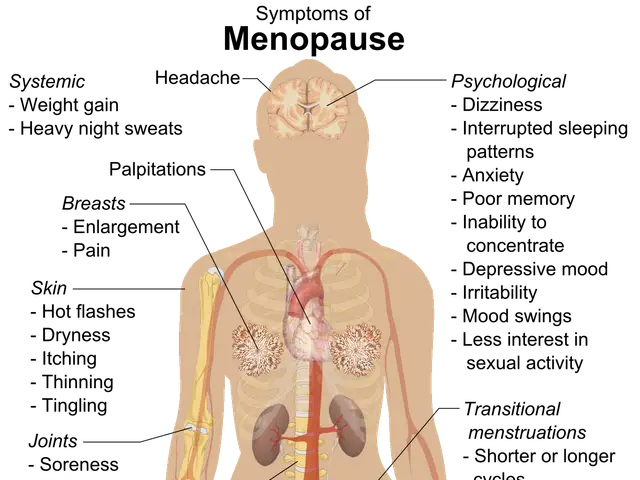Daily Consumption of Two Tablespoons of Olive Oil for Optimal Heart, Brain, and Cell Health
In a world where health-conscious individuals are constantly seeking ways to improve their wellbeing, a humble kitchen staple has emerged as a potential powerhouse of health benefits: olive oil. Scientific studies suggest that consuming two tablespoons (about 25-30 ml) of extra virgin olive oil daily offers multiple health advantages, particularly for heart, brain, and cellular health, and reduces the risk of certain diseases.
Heart Health ----------------
Olive oil, rich in monounsaturated fatty acids (MUFAs), especially oleic acid, has been linked to lowering LDL ("bad") cholesterol and maintaining or sometimes increasing HDL ("good") cholesterol. This balance promotes cardiovascular health. A clinical trial showed that 25 ml/day of extra virgin olive oil lowered total cholesterol and triglycerides in both young and elderly healthy subjects after 12 weeks, supporting its role in reducing coronary heart disease (CHD) risk.
Brain Health -------------
The omega-3 fatty acids in olive oil support brain function, including memory and clarity. Regular consumption is being studied for potential beneficial effects on dementia and cognitive decline. Olive oil’s anti-inflammatory properties may help protect brain cells from damage caused by chronic inflammation, which is linked to neurodegenerative diseases.
Cellular Health and Disease Risk Reduction -------------------------------------------
Olive oil contains antioxidants and anti-inflammatory compounds that help reduce inflammation, considered a root cause of many chronic conditions such as arthritis and some cancers. Epidemiological studies suggest that higher olive oil intake is associated with a lower risk of colon, rectal, ovarian cancer, and rheumatoid arthritis, possibly due to its antioxidant and anti-inflammatory effects. It may improve blood sugar control in diabetes and metabolic syndrome, conditions that increase heart disease risk. Olive oil’s components may also improve liver fat buildup in non-alcoholic fatty liver disease (NAFLD).
Other Benefits --------------
Olive oil supports skin and hair growth, bone health, metabolism regulation, and reproductive system maintenance thanks to its omega-6 fatty acids. Studies indicate consuming olive oil daily may aid in weight management by enhancing satiety and energy expenditure, potentially reducing obesity-related risks.
Supporting Studies Summary ---------------------------
A 12-week randomized trial with 25 ml daily intake demonstrated improvements in lipid profiles in healthy adults. Large cohort studies (Nurses’ Health Study and Health Professionals Follow-up Study) showed that even small increases in olive oil intake were associated with reduced long-term weight gain and lower cardiovascular risk. Observational studies link olive oil consumption with lower incidence of certain cancers and autoimmune diseases.
Conclusion ----------
Daily consumption of two tablespoons of extra virgin olive oil is supported by scientific evidence to contribute significantly to heart, brain, and cellular health, while reducing the risk of chronic diseases such as cardiovascular disease, certain cancers, diabetes, and neurodegenerative conditions. This benefit is attributed largely to olive oil’s favorable fatty acid profile, antioxidant content, and anti-inflammatory effects. A diet rich in olive oil can improve insulin sensitivity.
- In addition to its benefits for heart and cardiovascular health, olive oil's rich antioxidant content and anti-inflammatory properties contribute to improved brain function and cellular health, potentially reducing the risk of neurodegenerative diseases and certain cancers.
- Beyond supportive effects on heart, brain, and cellular health, olive oil's omega-3 and omega-6 fatty acids contribute to healthy skin, hair growth, bone health, metabolism regulation, and reproductive system maintenance, while its potential weight management properties make it a viable choice for those looking to reduce obesity-related risks.







